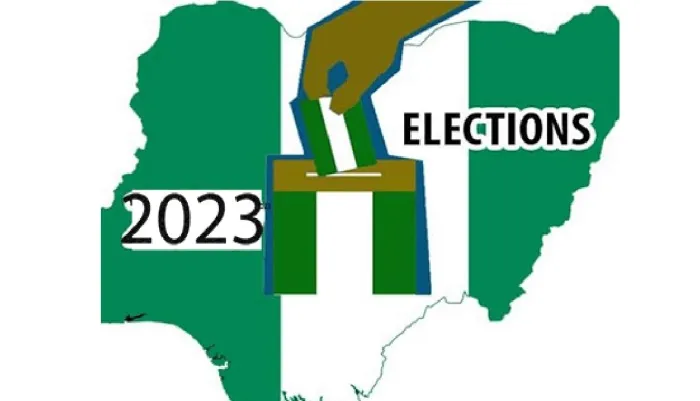2023: Key INEC officials you should know and their roles
In about two weeks, Nigerians will go to polls to elect new set of leaders at the federal and state governments. The Independent National Electoral Commission (INEC), the body saddelled with the responsibility of conducting free and fair elections will be at the forefront of the exercise on February 25 and March 11, 2023. Daily […]

In about two weeks, Nigerians will go to polls to elect new set of leaders at the federal and state governments.
The Independent National Electoral Commission (INEC), the body saddelled with the responsibility of conducting free and fair elections will be at the forefront of the exercise on February 25 and March 11, 2023.
Daily Trust highlights some key electoral officials – permanent and ad-hoc staff – and the unique roles they will play during the general elections. They are expected to be polite, courteous and professional towards eligible voters and observers.
According to the Electoral Act, 2022, INEC officials found engaging in corrupt and unethical practices shall be punished. In no particular order, below are some of the key officials and their roles.
National crises: Buhari convenes emergency Council of State meeting Friday
Politicians, electorate biggest danger to 2023 polls – Jega
Resident Electoral Commissioners (RECs): The RECs are responsible for the conduct and supervision of the elections in states and the Federal Capital Territory. They take delivery of sensitive and non-sensitive materials to all electoral officials. They are also responsible for recruiting and training election staff.
Electoral Officers (EOs): They are responsible for conducting and supervising elections in local government areas or area councils. They also receive election materials from RECs and distribute them to the Supervisory Presiding Officers who in turn deliver them to the Presiding Officers.
Supervisory Presiding Officers (SPOs): SPOs supervise the conduct of the polls in a cluster of polling units and assist in training presiding officers, poll clerks, and poll assistants. They ensure all sensitive and non-sensitive materials are available at the assigned polling stations in the right quantity and at the right time.
They are expected to visit polling units under their supervision to attend to any problems facing a particular polling unit.
They ensure that the results of the poll for the assigned polling stations are delivered to the collation officer by the presiding officer. SPOs also ensure that all election materials returned by the presiding officer are submitted to the electoral officer immediately after the elections.
Collation Officers: They are responsible for registering area and ward collation officers, and collating results from polling units within a rural area and ward.
Presiding Officer (PO): POs are in charge of all activities at a polling unit on the election day. They sort, count, and announce election results at the polling unit after tabulating and summing up the votes cast. POs must be at the polling unit early to set up, coordinate activities at the voting points, and conduct voter education ahead of voting. They issue ballot paper(s) to voters and ensure that voters deposit thumb-printed ballot paper (s) into the appropriate ballot box.
Technical Support Staff at Elections: These are permanent INEC or ad-hoc staff deployed to provide support services at various levels. They include the Registration Area Technical Support Staff (RATechs) who carries out refresher training for the Presiding Officers at the Registration Area Centre (RAC), provides support on the use of the Bimodal Voters Accreditation System (BVAS), fix malfunctioning BVAS.
They are expected to configure a new BVAS for any polling unit with a malfunctioning one and verify and confirm the polling unit results uploaded at the polling unit by the presiding officer on the INEC result viewing portal (IReV).
The Polling Team: The polling team is a minimum of four officials comprising; PO, Assistant Presiding Officer (APO) 1 ((Verification and Statistics/Overseer) Assistant Presiding Officer (APO) II (Register-check/Ballot Paper Issuance and Inking) Assistant Presiding Officer (APO) II (Queue Controller).
Electoral Operations: CSRVS Technical Support: These are INEC permanent staff deployed at elections as Collation Support and Result Verification Secretariat (CSRVS) with a responsibility to provide support to the Collation/Returning officers on election day at various collation levels.
Monitors: These are permanent staff members of INEC deployed to monitor the conduct of the elections at RA, LGA, and constituency levels.
Returning Officers: ROs are INEC ad-hoc officials who announce the election results and declare winners of National Assembly, state assembly and governorship polls respectively.
Chief Electoral Commissioner: The INEC Chairman is the chief electoral officer. He collates results from all states within the federation in the presidential election and he is the returning officer who declares the winner.
